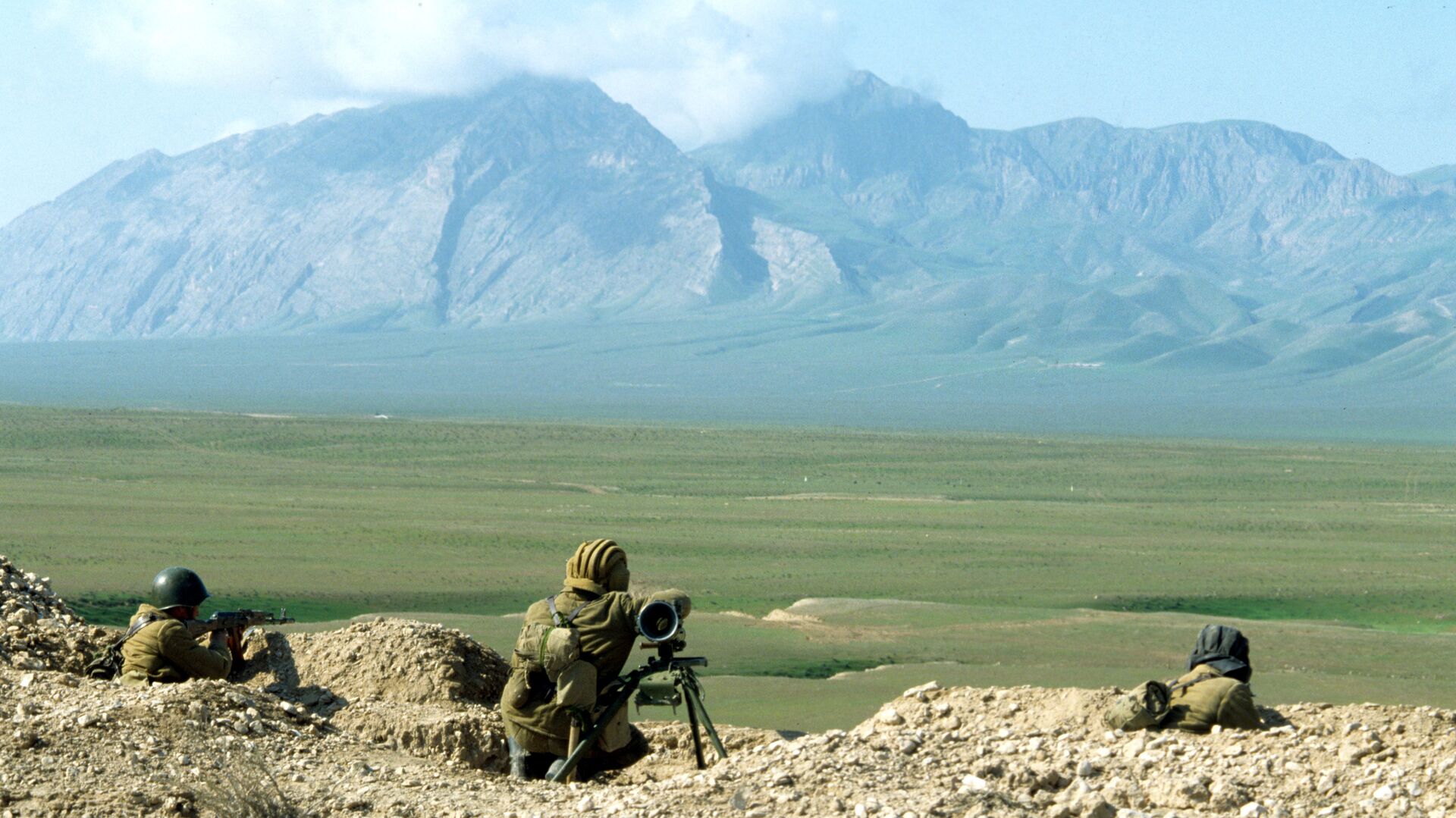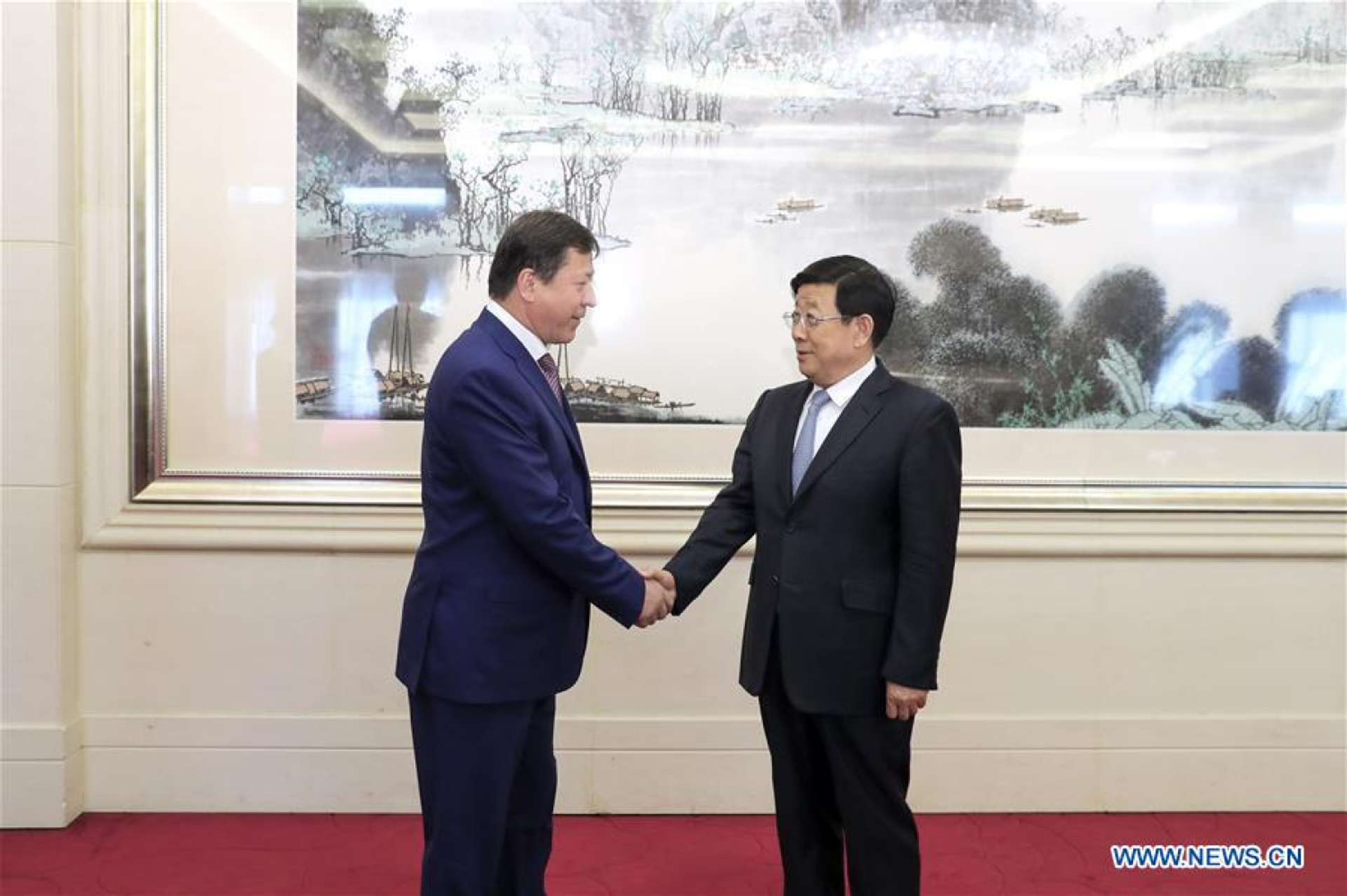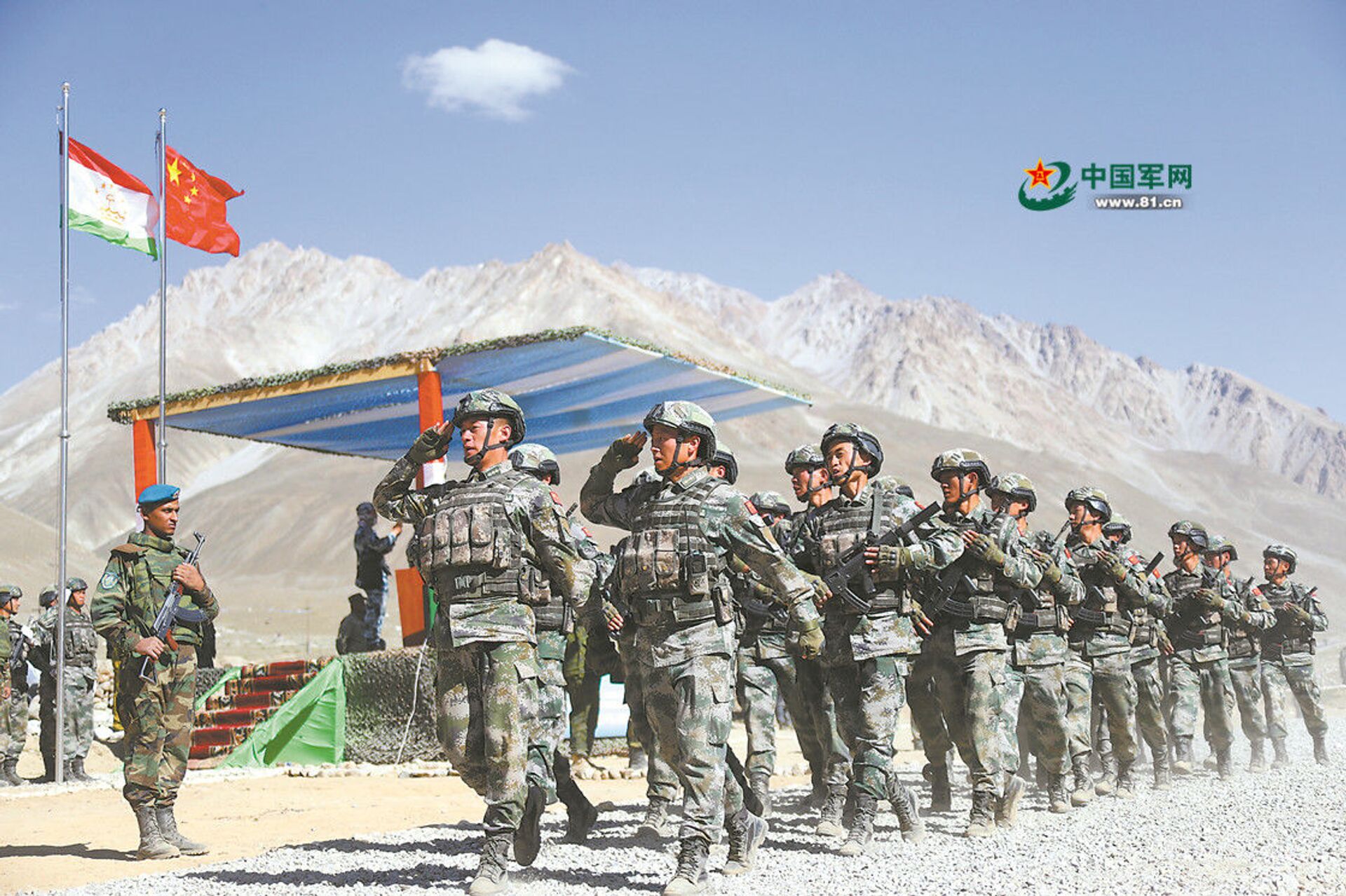China, Tajikistan Join Up for Security Drills Amid Taliban Victory in Neighboring Afghanistan

© RIA Novosti
Subscribe
The rapid advance of the Taliban since May set regional governments on edge, with Tajikistan and Pakistan rushing troops to their borderlands, and Russia and China conducting military and security drills in Tajikistan as well, amid fears the war could spill across the porous, high-altitude borders.
Chinese security experts traveled to the Tajik capital of Dushanbe on Wednesday for two days of joint security drills with their counterparts in the mountainous nation. Dubbed the “Counterterrorism Collaboration 2021” exercises, the drills were planned in advance and are part of a longstanding security collaboration between the two nations.
However, the exercises have taken on a new urgency as the Taliban’s blitz on the Afghan government encountered wild success over the weekend, sending the Afghan military into complete collapse and former President Ashraf Ghani fleeing the country as Kabul surrendered without a fight.
“The current international situation is changing and the regional counterterrorism situation is not optimistic,” China's State Councilor and Minister of Public Security Zhao Kezhi wrote in letters to Ramazon Hamro Rahimzoda, Tajikistan’s internal affairs minister, and Saimumin Yatimov, chairman of its State Committee for National Security, that were viewed by the South China Morning Post.
Zhao said the exercises “would enhance the level of operational readiness of the counterterrorism forces of the two sides to practise counterterrorism skills, and demonstrate the determination of both sides to combat terrorism and effectively respond to the terrorist threats faced by both countries.”
Tajikistan, a former Soviet republic that gained independence in 1991 and fought a five-year civil war that ended in a stalemate in 1997, shares an 843-mile-long border with Afghanistan, nearly all of it with the northeastern Badakhshan Province. Last month, Dushanbe mobilized some 20,000 reserve troops to the border after Afghan civilians, and even soldiers began fleeing across the border to safety ahead of a Taliban offensive in the area. Russian forces based in Tajikistan soon followed.

Chinese State Councilor Zhao Kezhi, also minister of public security, meets with Tajik Interior Minister Ramazon Rahimzoda in Beijing, capital of China, March 28, 2019.
© Yin Gang
China’s primary concern in Central Asia is stability, particularly in Afghanistan, where Beijing hopes to convince the Taliban to end its support for terrorist groups like the East Turkestan Islamic Movement (ETIM), which in the past has been allowed refuge in Taliban-controlled territory. The terrorist group seeks to separate China’s Xinjiang Autonomous Region, which shares a narrow border with Afghanistan, from the rest of China and is responsible for numerous deadly acts of terrorism in China.
“People from other countries who want to use Afghanistan as a site [to launch attacks] against other countries, we have made a commitment that we will not allow them in whether it’s an individual or entity against any country including China,” Taliban spokesman Suhail Shaheen told SCMP in a July interview.
Last month, Chinese Foreign Minister Wang Yi said on a visit to Dushanbe that if a Taliban-ruled Afghanistan wants to join the Shanghai Cooperation Organisation, a Eurasian political, economic and security bloc, it will have to prove it can rule in a “responsible” manner, including rejecting terrorism and building an inclusive government. Afghanistan has been an observer since 2005.
Tajikistan is slated to host a meeting of bloc leaders next month, which includes Tajikistan, China, Uzbekistan, and Pakistan, all of which share a border with Afghanistan. Other members include Russia, Kyrgyzstan, Kazakhstan, and India. The issue of Afghan security is sure to figure at the top of their agenda.
China and Tajikistan have cooperated on military and other security issues since 2006, via the SCO. Late last month, Tajik President Emomali Rahmon and Chinese State Councilor and Minister of National Defense Wei Fenghe agreed on the need to enhance security cooperation, particularly on controlling the spread of terrorism across international borders, according to Xinhua News Agency.

Chinese and Tajik soldiers pass in review at the end of the “Cooperation-2019” China-Tajikistan joint counter-terrorism exercise at the Jilondi training range in Gorno-Badakhshan, Tajikistan, August 16, 2019.
© Wu Shike
China and Tajikistan, as well as Pakistan and Afghanistan, have cooperated on counter-terrorist efforts since 2016 via the Quadrilateral Cooperation and Coordination Mechanism (QCCM). The following year, relations between Pakistan and the now-former Afghan government broke down after Ghani accused Islamabad of waging an "undeclared war of aggression," Dushanbe-Beijing relations further flourished.
According to unconfirmed western reports, a deployment of between dozens and hundreds of Chinese troops have been posted since then in far eastern Tajikistan, along the closest road to China’s remote 47-mile border with Afghanistan.
Wang also discussed the situation in Afghanistan with US Secretary of State Antony Blinken in a Monday phone call. The two expressed mutual willingness to work together on stabilizing Afghanistan, and agreed that the Taliban government must “make a clean break with extremism,” as Xinhua put it. While Blinken hoped Beijing would play a major role in this, Wang cautioned that Washington “cannot, on the one hand, deliberately contain and suppress China and undermine China's legitimate rights and interests, and on the other hand, expects support and cooperation from China.”
The US has accused China of genocidal policies against the Uyghur Muslim minority in Xinjiang in its efforts to clamp down on terrorist groups like ETIM; Beijing has countered that its rehabilitation and training programs for former extremists are voluntary and in line with the United Nations’ Plan of Action to Prevent Violent Extremism guidelines.



